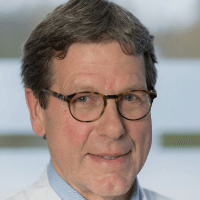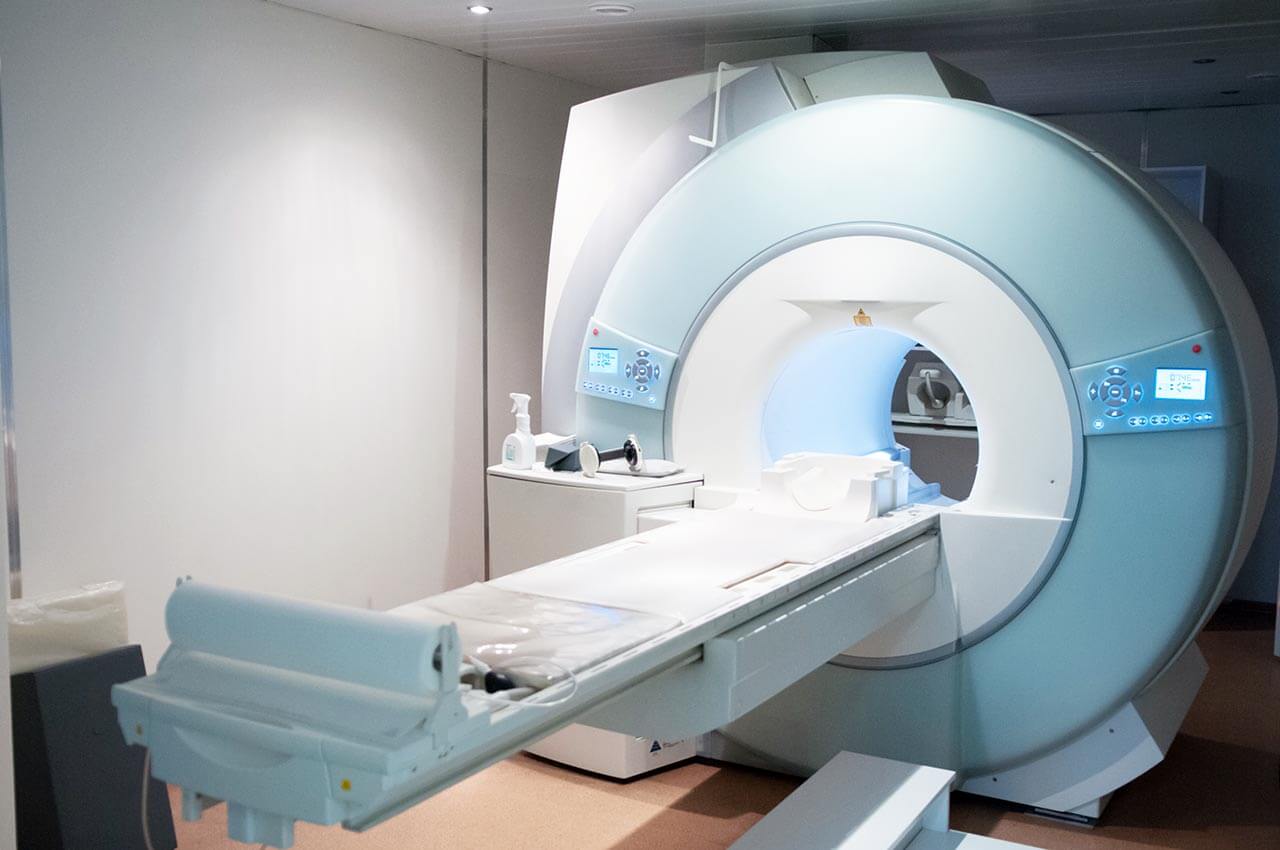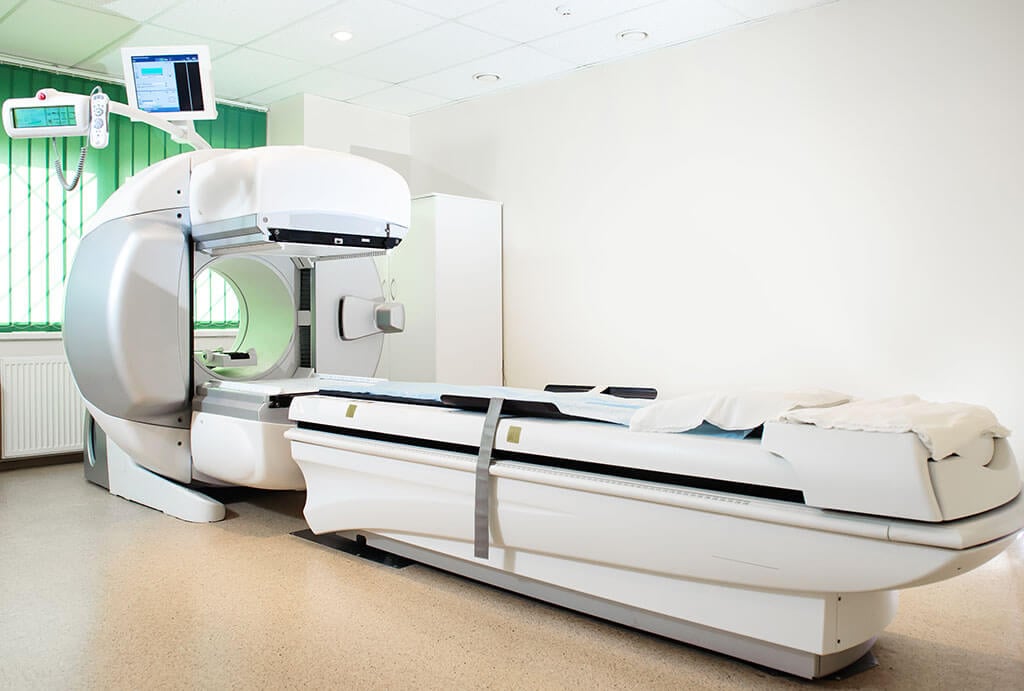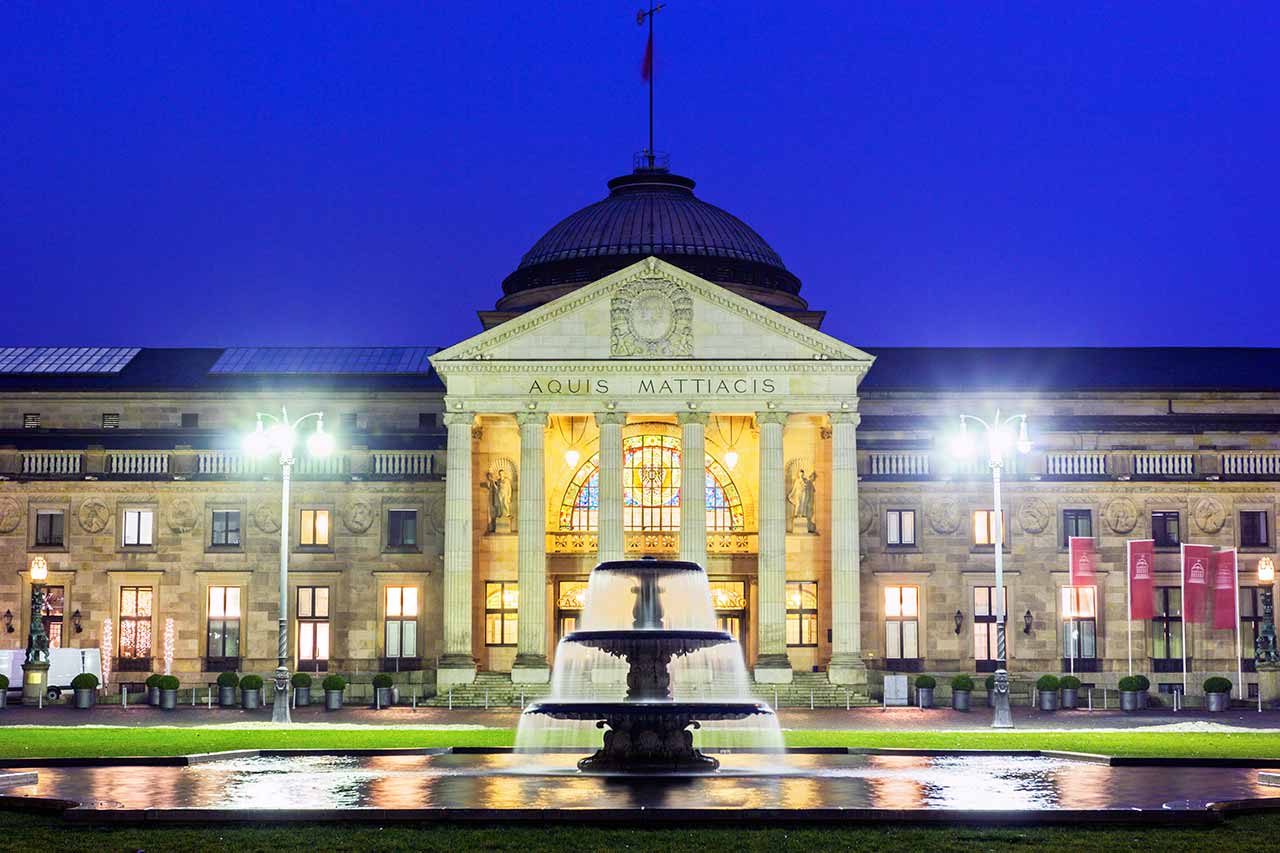
The program includes:
- Initial presentation in the clinic
- clinical history taking
- review of medical records
- physical examination
- laboratory tests:
- complete blood count
- general urine analysis
- biochemical blood test
- inflammation markers (CRP, ESR)
- blood coagulation analysis (aPTT, PT, INR)
- immunological diagnostic
- vitamin B12
- folic acid
- blood smear
- abdominal ultrasound
- bone marrow biopsy with histological study
(if indicated clinically, additional cost is 2500€) - differential diagnosis with other blood diseases
with impaired immunopoiesis - nursing services
- services of all leading experts
- explanation of individual treatment plan
Required documents
- Medical records
- Complete blood count (if available)
Service
You may also book:
 BookingHealth Price from:
BookingHealth Price from:
About the department
The Department of Hematology and Oncology at the DKD HELIOS Clinic Wiesbaden offers the high-precision diagnostics and modern treatment of the full range of diseases of the hematopoietic system, as well as solid malignant tumors. The department mainly provides outpatient therapy. The medical team has in its arsenal all modern conservative treatment methods. The surgical resection of malignant tumors is performed by specialized surgeons. The interdisciplinary cooperation of doctors allows providing patients with the most comprehensive and effective treatment. The medical facility regularly holds tumor boards, during which the doctors individually consider each clinical case and develop a step-by-step treatment regimen. The therapeutic process is based on an individual approach to the patient, thanks to which the specialists achieve successful results. Great importance is attached to the emotional state of the patients, and therefore qualified psychologists are involved in the therapeutic process, if required. The doctors working in the department are guided by the current clinical protocols and recommendations of the German Cancer Society. The Chief Physician of the department is Dr. med. Klaus Maria Josten.
Chemotherapy is an integral component of the treatment of malignant diseases, as well as one of the most effective methods of fighting cancer. The department's specialists have many years of experience in the field of chemotherapy, thanks to which they successfully select the optimal complex of drugs for each patient, which will most effectively destroy cancer cells. The duration and type of chemotherapy treatment depends on the diagnosis, stage of cancer, the severity of the patient's general condition, his age and other factors. The doctors of the department carry out chemotherapy on an outpatient basis, so patients do not need to be constantly in the hospital. At the same time, the attending physician carefully monitors the patient's condition and the side effects of treatment. In most cases, the department's oncologists conduct intravenous chemotherapy using special catheters and port systems. In addition, each patient is assigned an individual chemotherapy regimen – the course of chemotherapy can be continuous or it can include treatment cycles and breaks between them to restore the body. In rare cases, chemotherapy can be used as monotherapy, but it is usually combined with other conservative and surgical treatments.
The department actively uses immunotherapy. The mechanism of action of immunotherapy is the activation of the immune system in order to protect the body from cancer cells. On the surface of T lymphocytes (cells of the immune system) there are special proteins codenamed PD-1 and CTLA-4. They are called immune response checkpoints. The tumor cells neutralize T cells, as a result of which the immune system ceases to fight the oncological process in the human body. The introduction of immunotherapy drugs into the patient's body activates T lymphocytes. In addition, it is possible to "train" the patient's own T lymphocytes to recognize tumor cells in the laboratory. To do this, T lymphocytes are isolated from the patient's blood, and after "training" they are returned back to the body so that they recognize and destroy tumor cells. Today, the department's doctors successfully use immunotherapy to treat melanoma, lung, kidney, stomach, bladder, prostate, pancreatic cancers, as well as Hodgkin's lymphoma and other oncological diseases. The patient receives drugs intravenously. The total duration of the course of treatment is determined by an oncologist.
The department's team of oncologists widely uses antibody therapy. Antibodies are special molecules that are synthesized by the cells of the immune system in response to the body's contact with a foreign agent. The essence of the treatment is the injection of antibodies into the patient's body, which activate his own immune system to fight cancer cells. Antibody drugs compare favorably with chemicals in their selectivity of action, which ensures high efficiency of therapy and minimal side effects. The use of antibodies is usually combined with other treatments, such as radiation therapy or chemotherapy. The technique is effective for the treatment of both blood cancer and malignant solid tumors.
The department's therapeutic offer is complemented by hormonal therapy. The method is highly effective in the treatment of prostate cancer, breast cancer and gynecological oncological diseases. The development of these types of cancer may be due to the action of hormones, and therefore their treatment involves the use of special drugs that block or modify the effect of hormones on tumor cells. In some cases, hormonal therapy can be applied as a monotherapy, but it also works well with other therapies.
The department specializes in the diagnostics and treatment of the following diseases:
- Hematology
- Acute lymphoblastic leukemia
- Acute myeloid leukemia
- Chronic lymphoblastic leukemia
- Chronic myeloid leukemia
- Myelodysplastic syndrome
- Myeloproliferative disorders
- Oncology
- Malignant tumors of the gastrointestinal tract (stomach, colon, esophageal cancers, etc.)
- Malignant tumors in the head and neck
- Malignant tumors of the lungs and other thoracic organs
- Malignant tumors of the breast
- Malignant tumors of the female genital organs
- Malignant tumors of the prostate
- Malignant tumors of the bladder
- Malignant tumors of the kidneys
- Malignant tumors of the liver
- Malignant tumors of the skin
- Malignant tumors of bones and soft tissues (sarcomas)
- Other hematological and oncological diseases
The department's main therapeutic options include:
- Chemotherapy
- Antibody therapy
- Hormonal therapy
- Immunotherapy
- Transfusion of blood products
- Participation in clinical trials (at the patient's request)
- Other treatment methods
Photo of the doctor: (c) DKD Helios Klinik Wiesbaden
About hospital
The DKD HELIOS Clinic Wiesbaden has long made a name for itself in the international medical arena by introducing an optimal model of medical care, combining the use of the most advanced medical technologies, the experience of highly qualified doctors and impeccable quality of patient care. The medical facility first opened its doors to patients in 1970. The world famous Mayo Clinic Rochester in America served as a model for the design of the medical complex. Since the foundation of the clinic, the main direction of its activities has been comprehensive diagnostics of complex diseases integrated into an interdisciplinary treatment concept. Today, an integral part of clinical practice is also preventive diagnostics aimed at the early detection of pathological changes in the human body. In recent years, the clinic has been actively developing the direction of surgery, in which it has significantly succeeded. The clinic enjoys a reputation as one of the best medical facilities in Europe in the field of endocrine and colorectal surgery, as well as in hernia repair surgery.
The clinic has 24 specialized departments. Each of them offers a team of experienced doctors, whose main value is the patient's health. The work of all doctors of the medical facility is based on a single credo – "Treat not a disease, but a patient". According to this belief, the course of treatment should be as individual as possible, taking into account the patient's physical characteristics, lifestyle, diet, emotional state, etc.
The clinic's bed capacity consists of 138 inpatient beds and 60 beds in a day hospital. Many diagnostic and therapeutic procedures are performed on an outpatient basis. The diagnostic and treatment rooms, like the operating rooms of the clinic, are equipped with state-of-the-art technology to ensure the observance of strict hygiene and safety standards. The advanced medical equipment allows detecting the slightest changes in the functioning of organs and their structure with impeccable accuracy, thanks to which doctors can diagnose complex pathologies at the very early stages. This greatly increases the chances of a successful cure.
The location of the clinic in Wiesbaden, known as one of the oldest thermal spas in Europe, is another pleasant advantage for the patients. Arriving at the clinic for a preventive diagnostic examination, one can improve his health in the healing thermal springs, as well as enjoy the sightseeing of historical monuments. The medical center is located in the immediate vicinity of the English style Spa Park founded in the distant 1852, so in the free time from medical procedures one can take a pleasant walk in the beautiful park.
Photo: (с) depositphotos
Accommodation in hospital
Patients rooms
The patients of the DKD HELIOS Clinic Wiesbaden live in comfortable single and double rooms. Each patient room has an ensuite bathroom with shower and toilet. The standard patient room furnishings include an automatically adjustable bed, a bedside table, a table and chairs, a TV and a telephone.
The clinic also offers enhanced comfort rooms with spacious bathrooms, which additionally include a large mirror, hairdryer, changeable towels and toiletries. These patient rooms also have a safe for storing valuables, a free minibar with soft drinks, a flat-screen TV with satellite channels and free Wi-Fi.
Meals and Menus
The patients of the clinic are offered tasty and balanced three meals a day: breakfast, lunch and dinner. If for some reason you do not eat all the foods, you will be offered an individual menu. Please inform the medical staff about your dietary preferences prior to treatment.
The clinic also has a cozy cafe where one can taste delicious snacks, salads, main courses and desserts. One can also enjoy aromatic coffee, delicious tea and soft drinks in the cafe.
Further details
Standard rooms include:
Religion
The religious services are available upon request.
Accompanying person
During the inpatient program, the accompanying person can live with the patient in a patient room or a hotel of his choice. Our managers will help you choose the most suitable option.
Hotel
During the outpatient program, the patient can stay at the hotel of his choice. Our managers will help you choose the most suitable option.





